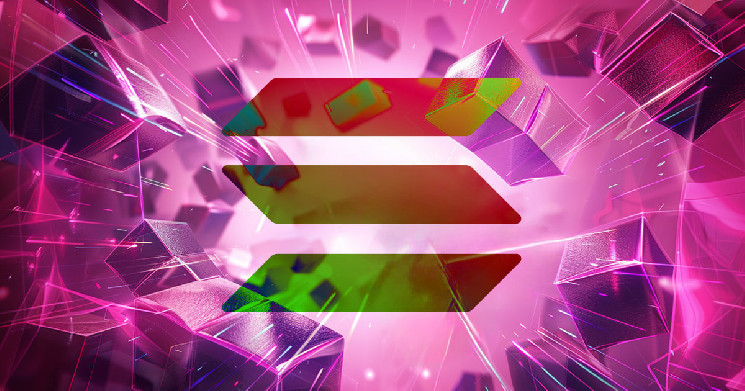DecideAI has announced the integration of its biometric identity verification solution, DecideID, into the Solana blockchain, with the aim of improving security and trust within the ecosystem. This move introduces Proof-of-Personhood (PoP) capabilities to Solana, ensuring users are authenticated as unique individuals without the need for traditional Know-Your-Customer procedures.
Raheel Govindji, Founder and CEO of DecideAI, commented:
“DecideID is positioned to set a new standard in identity verification in the blockchain space. The Solana integration is just the beginning and we expect a significant increase in user growth and adoption”
The integration is expected to address long-standing vulnerabilities in Solana’s airdrop ecosystem, which was previously prone to Sybil attacks and botting. By authenticating real users through AI-powered facial recognition and liveness detection technologies, DecideID aims to prevent fraudulent activities and ensure fair token distributions.
Solana developers now have the ability to use DecideID’s identity verification tools to improve the integrity of decentralized applications. This is particularly important for DeFi projects, where ensuring transactions are executed by real and unique individuals adds a crucial layer of trust. The technology analyzes facial movements, depth and micro-expressions to confirm user authenticity, using Zero-Knowledge proofs to protect personal data during the verification process.
According to DecideAI, the integration will
“Add a layer of trust to lending, wagering and yield farming by ensuring only real and unique people are behind transactions.
Additionally, DecideID’s AI facial recognition technology requires no Know-Your-Customer procedures or documentation, making it an easy and fast scan for users.”
The integration is currently in the testing phase and is expected to be fully launched before the end of the year. After release, Solana users will be able to link their wallets, participate in airdrops, and verify their personality without extensive documentation. DecideAI is also in talks with several Solana-based DeFi and NFT platforms that plan to adopt DecideID for enhanced security and fair governance participation.
This development is made possible by the Internet computer’s Chain Fusion technology, which enables seamless integration at the protocol level with other blockchains. The Internet Computer (ICP) acts as a powerful general-purpose blockchain and Web3 platform, allowing DecideID to expand its services beyond Solana with potential future integrations into networks such as Ethereum.
DecideID has reportedly already verified more than 14,000 unique users and aims to promote trust and accountability in decentralized applications. By preventing malicious activities and ensuring safe interactions, it contributes to a more transparent and fair blockchain environment.
According to the recent announcement, DecideAI’s mission goes beyond identity verification. It aims to reshape the landscape of large language models by prioritizing quality, collaboration and ownership. Through its ecosystem consisting of Decide Protocol, DecideID and Decide Cortex, the company seeks to democratize access to AI resources while rewarding employees and setting new standards for open-source collaboration.
Evidence of personality protocols is increasing
This integration places DecideID among notable Proof-of-Personhood initiatives such as World, Proof of Humanity, Idena, CorePass and Anima Protocol.
World (formerly Worldcoin), founded by Sam Altman, uses iris scans to generate unique identifiers for individuals, although it has faced privacy concerns in collecting biometric data.
Proof of Humanity combines video verification with community approval to establish unique identities on the Ethereum blockchain. It aims to facilitate fair distribution in universal basic income projects.
Idena uses AI-resistant tasks called “flips” to ensure that each node in the network represents a unique human, increasing decentralization and resistance to Sybil attacks.
CorePass, on the Core Blockchain network, allows users to verify and tokenize credentials such as passports, driver’s licenses, emails and names. Data can then be sold to dApps, allowing users to realize the value of their data rather than giving it away for free.
Anima Protocol provides decentralized identity services on the BNB chain, focusing on privacy while verifying user authenticity.
These projects, like DecideID, demonstrate how blockchain can address challenges such as fraudulent activity and fair distribution of resources in digital ecosystems, but each takes a different approach to balancing security, privacy and user experience.

